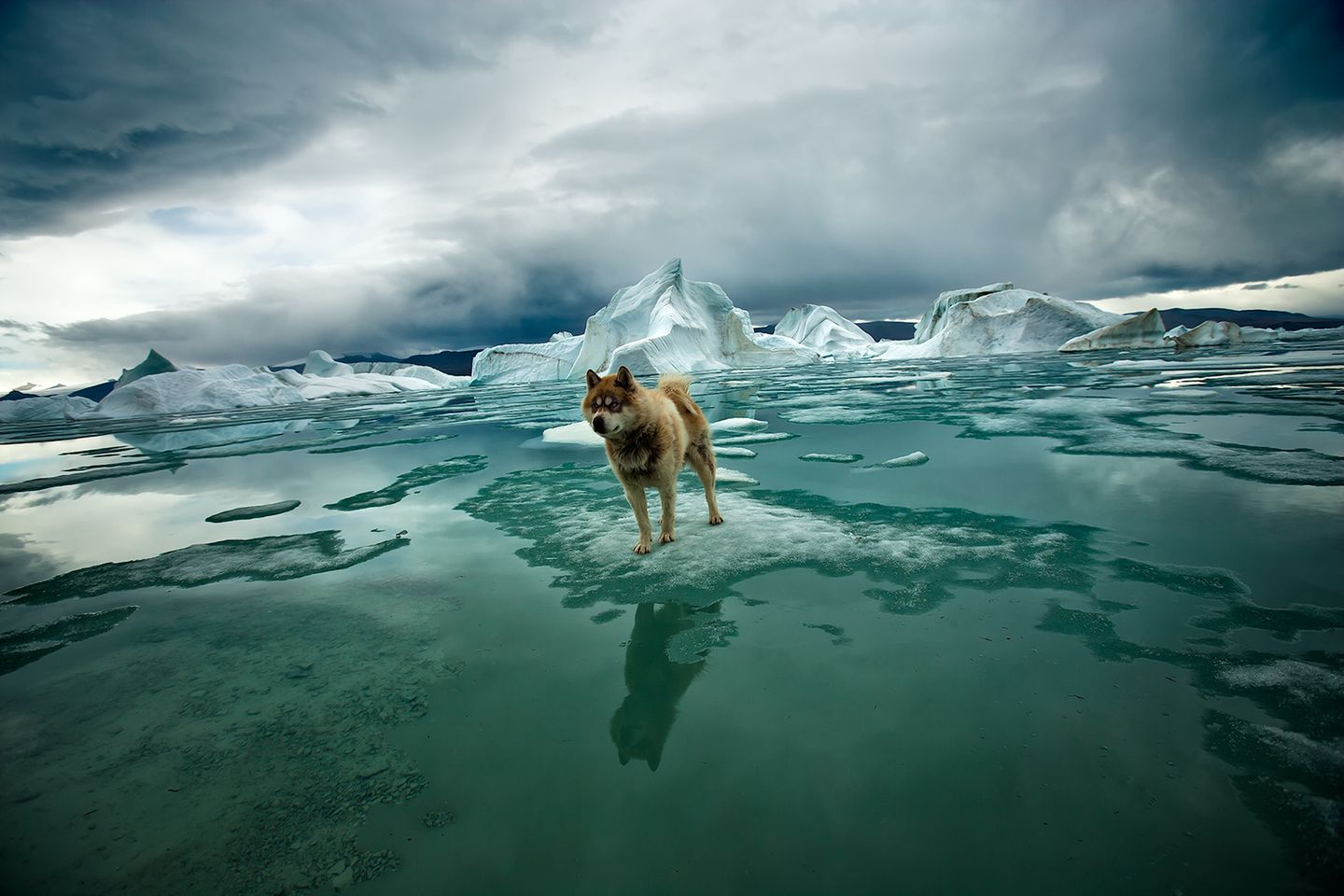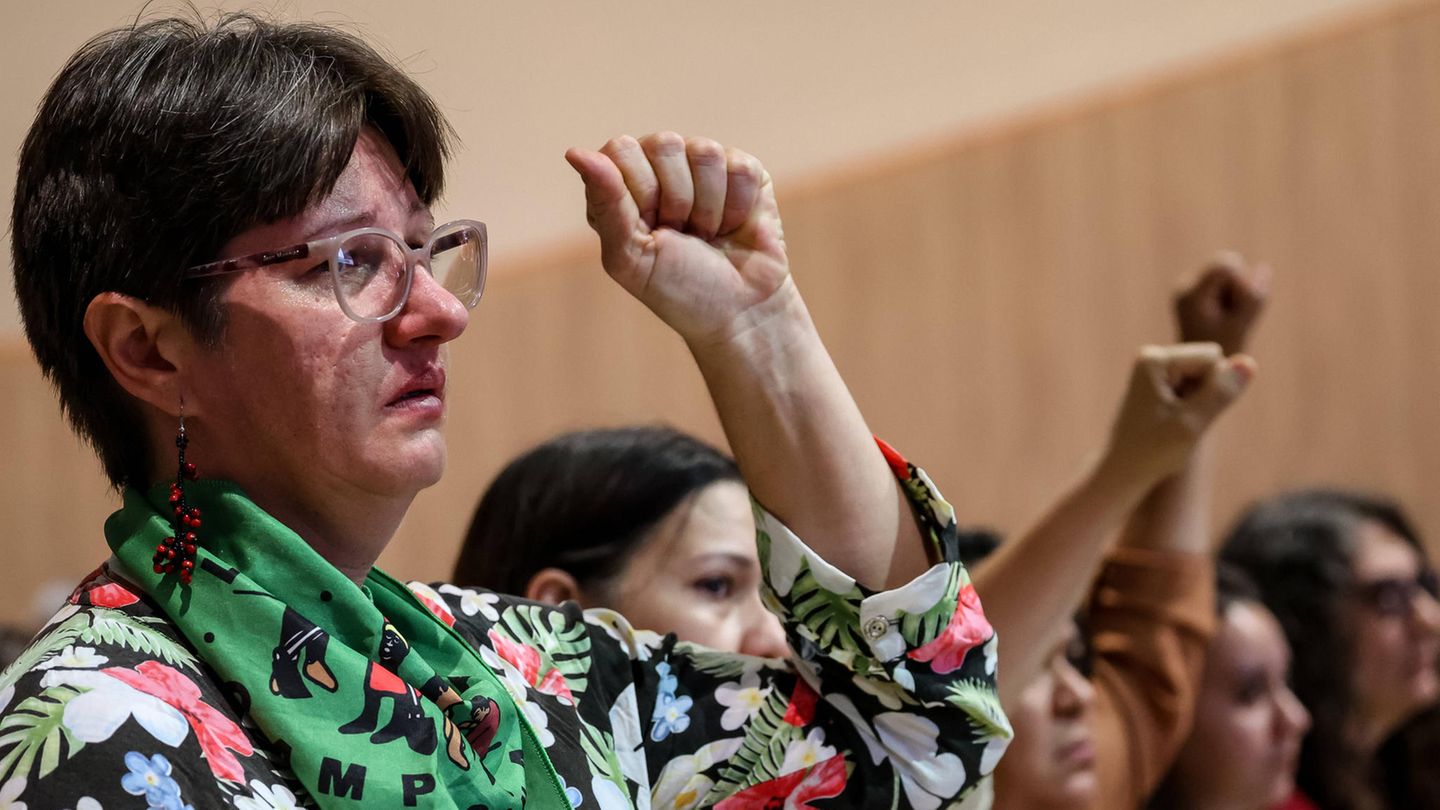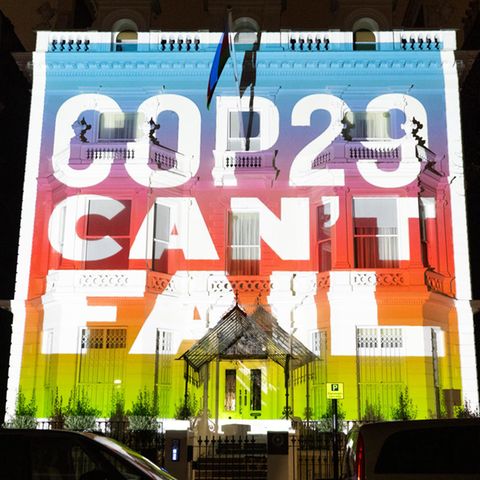COP29 in Azerbaijan
Emotional endgame in Baku: The world is worried about climate protection
Copy the current link
Hours before the official end of COP29, things got heated. Delegates feared regression instead of progress. But the hope of a breakthrough dies last.
It went exactly as feared: for two weeks, state representatives in Azerbaijan fought for new climate targets and a lot of money in tough negotiations. But an agreement was far from being in sight on Thursday, one day before the official end of the climate summit in Baku. Instead, the delegates of the participating states lost themselves in a bitter dispute over financial commitments. The situation escalated to such an extent that UN Secretary General Antonió Guterres traveled to the Azerbaijani capital to make a statement. There he appealed to the negotiators, “to try harder, increase the pace and deliver results”. Failure is not an option.
But shortly before the official end, there was no sign that the delegates were pulling themselves together. The proposals submitted are highly controversial. An independent group of experts from the United Nations has calculated that around one trillion US dollars per year are needed to arm ourselves against climate change and adapt to the consequences. An additional 1.3 trillion are needed by 2035 – ten to 13 times the current climate payments. The states have not yet been able to agree on a clear financial target. But that’s not the only sticking point shortly before the end:
- Those submitted Climate finance proposals are outrageous from the perspective of industrialized countries. A group of developing countries had an increase in annual climate financial aid by “at least” 500 billion dollars demanded. The industrialized countries, for their part, proposed 250 billion per year by 2035.
- The There is no financing target for the period 2025 to 2035. Instead of a specific amount, the papers contain an unspecified amount of trillions. In addition, the opposing positions of the donor and recipient countries are compared without deriving compromises.
- The A move away from fossil fuels threatens to fail. At the summit in Dubai in 2023, the countries agreed to triple renewable energy by 2030 and double energy efficiency by then. A clear commitment to this is missing from the documents of this year’s COP29.
The European delegates in particular did not like the proposals. EU Climate Commissioner Wopke Hoekstra dismissed them as “clearly unacceptable” back. The commitments to reduce greenhouse gas emissions are inadequate and climate financing is unclear. “We are far from where we should be”also criticized the German chief negotiator Jennifer Morgan. The drafts tended to lead away from the necessary ambitious resolutions.
Participants and observers fear that some countries may no longer be as serious about their commitments to move away from coal, oil and gas as agreed at the last climate conference in Dubai. Since the beginning of the negotiations in Baku, Saudi Arabia and its allies in particular have blocked ambitious decisions and stonewalled climate protection.
The Gulf states are known for slowing down negotiations. “Under international law, such countries must commit to the goals of the United Nations Framework Convention on Climate Change”says Klaus Dingwerth, who researches environmental policy at the University of St. Gallen. “However, the commitment is purely formal, and not much of it can be seen in the context of the negotiations – the signing of the agreement served more to slow down the negotiations as a contracting party.” In conversation with the star He therefore warns against overestimating the summit in Baku. “People have been meeting for 30 years and there are more important and less important moments.”
Sebastian Copeland’s best pictures of the Arctic – touching and depressing
Husky Zephyr accompanied Copeland to Otto Fjord on Ellesmere Island to protect himself from polar bears. A chance shot, the researcher actually wanted to photograph the melting iceberg in the background © Sebastian Copeland 
COP29 in Baku has not yet failed
In any case, it rarely happens that climate negotiations deliver a result at the official end. Most of the time it goes into overtime. Another conversation marathon is also looming in Baku.
Aside from the difficult negotiations, there were also bright spots:
- For example, States recognize that a Limiting emissions necessary is to reduce the consequences of climate change.
- An alternative version is the demand of the industrialized countries Number of paying states to expand. The industrialized countries should continue to have one “leading role” take part, but other countries should also take part “economically capable” are. So far, most countries around the world are among the recipients, while the costs are paid by comparatively few industrialized countries. In the run-up to the international meeting in Baku, representatives from Germany and other European countries called for other countries to be held accountable.
- In addition, the participate financially in the fossil sector. However, the observer organization Germanwatch is not entirely sure whether these passages will be accepted.
- On the sidelines of the UN climate conference, a group of 25 countries agreed on one Call for a worldwide ban on new coal-fired power plants. Countries such as Germany, Canada, Great Britain, France and Australia took part. The waiver could be included in national climate change targets (NDCs), which are set to be tightened next year.
But for observers and activists, this is all happening too slowly. Since the Paris Climate Agreement in 2015, there has been no significant progress at subsequent summits. With each COP that passed, the conferences became more contentious. During the negotiations in Baku, the question was repeatedly raised as to how useful such international events still are.
Environmental policy scientist Dingwerth is convinced that there are no alternatives to the COP. However, he also emphasizes that bilateral talks away from the media would bring significantly more progress. “The actual music plays between the COPs.” Groundbreaking climate measures are now decided primarily at the national level. Bilateral negotiations play a particularly important role between world powers such as China and the USA.
The situation in Baku is complicated, but probably not hopeless. Foreign Minister Annalena Baerbock spoke of one “rocky path”which is still to go. Hopes also rest on host Azerbaijan. He had announced new proposed resolutions for Friday afternoon. Will the presidency stick to the schedule? The delegates in Baku are waiting eagerly.
Source: Stern
I have been working in the news industry for over 6 years, first as a reporter and now as an editor. I have covered politics extensively, and my work has appeared in major newspapers and online news outlets around the world. In addition to my writing, I also contribute regularly to 24 Hours World.





